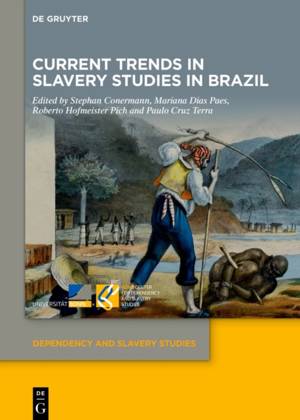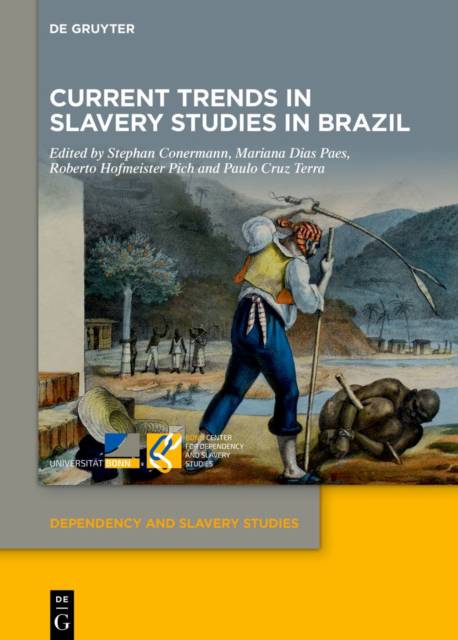
- Afhalen na 1 uur in een winkel met voorraad
- Gratis thuislevering in België vanaf € 30
- Ruim aanbod met 7 miljoen producten
- Afhalen na 1 uur in een winkel met voorraad
- Gratis thuislevering in België vanaf € 30
- Ruim aanbod met 7 miljoen producten
Zoeken
Current Trends in Slavery Studies in Brazil
€ 173,95
+ 347 punten
Omschrijving
African slaves were brought into Brazil as early as 1530, with abolition in 1888. During those three centuries, Brazil received 4,000,000 Africans, over four times as many as any other American destination. Comparatively speaking, Brazil received 40% of the total number of Africans brought to the Americas, while the US received approximately 10%. Due to this huge influx of Africans, today Brazil's African-descended population is larger than the population of most African countries. Therefore, it is no surprise that Slavery Studies are one of the most consolidated fields in Brazilian historiography. In the last decades, a number of discussions have flourished on issues such as slave agency, slavery and law, slavery and capitalism, slave families, demography of slavery, transatlantic slave trade, abolition etc. In addition to these more consolidated fields, current research has focused on illegal enslavement, global perspectives on slavery and the slave trade, slavery and gender, the engagement of different social groups in the abolitionist movement or Atlantic connections. Taking into consideration these new trends of Brazilian slavery studies, this volume of collected articles gives leading scholars the chance to present their research to a broader academic community. Thus, the interested reader get to know in more detail these current trends in Brazilian historiography on slavery.
Specificaties
Betrokkenen
- Uitgeverij:
Inhoud
- Aantal bladzijden:
- 345
- Taal:
- Engels
- Reeks:
- Reeksnummer:
- nr. 7
Eigenschappen
- Productcode (EAN):
- 9783111026107
- Verschijningsdatum:
- 22/05/2023
- Uitvoering:
- Hardcover
- Formaat:
- Genaaid
- Afmetingen:
- 170 mm x 244 mm
- Gewicht:
- 748 g

Alleen bij Standaard Boekhandel
+ 347 punten op je klantenkaart van Standaard Boekhandel
Beoordelingen
We publiceren alleen reviews die voldoen aan de voorwaarden voor reviews. Bekijk onze voorwaarden voor reviews.







